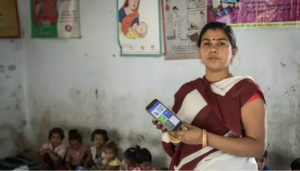Thousands of young girls across Kashmir have been targets of cyber crime in Kashmir.
by predators making them a victim of cybercrimes. In November 2019, after receiving various complaints of cybercrimes in Kashmir, J&K administration had set up a dedicated cybercrime police station to tackle the cases of web crimes against women. According to the official data accessed by the writer from the cyber police station, Kashmir, in 2020, the department received 150 complaints from women between the age group 18-30. The data reveals that four of these 150 cases were serious crimes in which the first inquiry report was lodged against the accused. As per the data, the cyber police, on an average, received 2 to 3 cases in a day.
But these figures are just the “tip of an iceberg”, said a police official on condition of anonymity.
“There are thousands of young girls who have been victims of cybercrime, but they don’t come forward to lodge complaints as they lack awareness and fear society,” said the official. Mostly teenage girls with little or no knowledge of the dark side of social media, fall prey to cyber predators. Unlike Zaidi, who lodged a complaint against her perpetrator, minor girls suffer in silence due to the stigma.
Fiza Ashraf, a 17 year old student from Nawa Kadal in Srinagar is apprehensive to join social media platforms due to security concerns.
“Many of my friends have faced several problems on Facebook. including bullying from male friends. I do not want to see myself in any such situation. I feel there is no security or privacy on social media”, Ashraf told BehanBox. “If you upload your pictures and video on these platforms, there is no guarantee that it will not be misused. People can download pictures, morph them and then blackmail innocent girls.”
“Many girls slip into depression as they start believing that such incidents can ruin their life. As a support, the department offers counselling to the victims by professional therapists,” the official said. He believes that it is the primary responsibility of parents to inform their children about the disadvantages of social media.
Cybercrimes against women have been on the rise especially after the Covid related lockdowns. Between February and April 2020, the incidents of cyber crime doubled according to data from National Commission for Women (NCW).The commission received a total of 412 complaints of cyber abuse between March and April 2020. 96% of these complaints were from women, which ranged from abuse, indecent exposure, unsolicited obscene pictures, threats, malicious emails claiming their account was hacked, ransom demands, blackmail and more.
Cyber violence against women is rising in Kashmir mirors the growing violence in everyday spaces. Ezabir Ali, a women rights activist from Srinagar, believes that last year’s lockdown due to Covid-19 led to growing incidence of domestic violence. “The situation has been deteriorating for domestic violence victims as women found themselves locked at home with their abusers and are at increased risk of other forms of violence. The overloaded healthcare systems and disrupted justice services have added more to their struggle,” said Ali.
A study titled, woman harassment in digital space in India published in international journal for pure and applied mathematics suggests that cybercrimes have no safeguard in India’s prevailing legal system. Another reason for increasing cyber crimes against women, as per this study, is that women do not have sufficient knowledge regarding privacy settings and using technology.
“Cybercrimes against women are not only a big security challenge in India but across the globe. We do have IT laws and provisions under Indian Penal Code to clampdown on cybercrimes and online bullying against women, we still have a long way to go as there is a dire need for more specific laws including the mandatory identification of online users, more integrated network and strict regulation of social media platforms for effective arrest of such offences against women,” said Vasundhara Pathak Masoodi, the former head of the women’s commission in Jammu and Kashmir before the abrogation of the Article 370.
(This article has been written as part of Sanjoy Ghose Media Awards 2020. This article has been sourced from Charkha Features)




